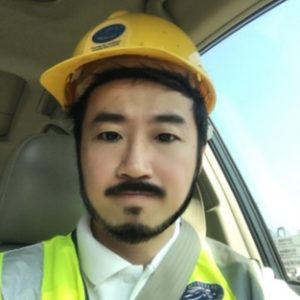
Liang Wu
To shed light on systematically invisibilized and immobilized seafarers who are the 1.6 million essential workers transporting 90% of world trade including everyday goods and products, Liang Wu has been studying the international shipping industry and seafarers' lives since 2006. Through working at various seafarer centers in Asia and North America, Wu has been directly involved in welfare provision and labor advocacy, and has melded his firsthand experiences in the field with participant observation, carrying out hundreds of ship visits and ethnographic interviews with seafarers as well as representatives of various organizations such as maritime ministries, trade unions, education and training institutes, shipping companies, port authorities, and logistics centers.
With the tentative title of “Contained at Sea: Multinational Seafarers, Mobility Politics, and the International Shipping Industry,” Wu’s dissertation project is situated at the intersection of anthropology, oceanic, critical mobility, and science and technology studies. It examines the meanings and lived experiences of contemporary seamanship, including the techno economic, infrastructural, and legal developments of shipping in the postwar era, the concomitant changing society and culture of port cities and shipboard communities, politics of mobility generated by the global expedition of materials, and the mechanisms and mediations through which multinational seafarers navigate their overseas relationships, job conditions, state administrations, and international law such as maritime security and environmental protection.
At the dawn of what is touted as the 4th Industrial Revolution that prioritizes technological communication, connectivity, and circulation, Wu’s work on seafarers as vanguard transport workers not only serves as a reference for other laborers of material delivery and social sustenance in the larger US society, but also offers critical insights into the future of labor conditions and industrial relations that undergird logistical processes of societies and economies around the globe.